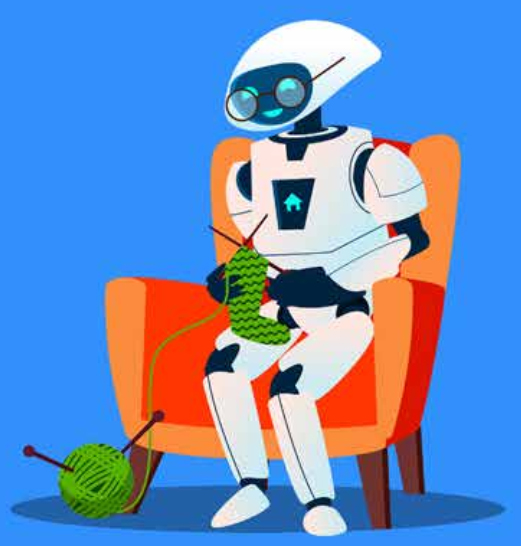

Who would have thought that space travel would have invented, amongst other things, the cordless vacuum, treadmills, and invisible braces? Or that the mobile phone would have grown to be the devil-child that it now is, having started life as a box of very limited tricks that was the size of a house brick with batteries to match? Nowadays we live our whole lives through our phones and heaven forbid that we should lose it, or the network goes down.
Nor must we forget the all-pervading influence of the world wide web itself. Little did Tim Berners-Lee anticipate the truly epoch changing properties of those innocuous initials: www.
The reason I mention all this is because, sometimes, I just don’t get the apparent obsession with smart technology, IoT, and needing to know whether I have enough milk in the fridge. If I’m desperate to comprehend the current stock of my coffee additive I can open the door of my gargantuan American fridge/freezer and take a look.
But, of course, I do recognise that whilst such trivial applications of smart technology are clearly a solution in search of a problem, that will not always be the case. In the now infamous words of US Secretary of Defence, Donald Rumsfeld, ‘we don’t know what we don’t know’. And unless we continue experimenting, innovating, and failing we are unlikely to ever find out. Applications of today’s smart technology regime will seem like the musings of misguided fools in just a few short years. In 10 years’ time we will wonder how we ever managed without them
However, for me, as a specialist in claims, the future of smart technology does not actually lie in the prevention of claims, as some of my industry colleagues would argue. Prevention may well be better than the cure but for insurers to occupy this space they would need to adopt a service provision business model and I just don’t think they would be any good at it.
“Applications of today’s smart technology regime will seem like the musings of misguided fools in just a few short years.”
They have enough trouble getting a repair done on a house roof damaged by high winds, and so the thought that they would have control over detecting water damage in my kitchen using pre-fitted sensors fills me with dread. Even the relatively mature telematics market has had little impact on mainstream motor insurance provision, and the tsunami of data being generated doesn’t seem to have done a lot to reduce overall accident rates on our roads.
Insurers are in the business of insurance (notice the subtle connection I made there). Claims people are there to fulfil the (sometimes rash) promises made by sales and underwriters. We are the ring of steel that provides security, peace of mind, and reinstatement when it all goes wrong. If consumers, corporates, and the public sector want to reduce their premiums by risk assessment and the use of smart technology then go ahead. It is not our role as insurers and claims people to develop and provide the smart kit. But we can make sure that lower premiums that are the potential consequence of smart technology adoption are the result of fair market forces and not merely a temporary pricing fad to attract new business .
In other words, when ‘we don’t know what we don’t know’ we can safely leave others to find out, and our role is to reap the benefits, along with our policyholders.
All of this leads me to the earth-shattering but not usually applied dictum that if only we would ‘stick to the knitting’ and do that better then all would be well. And my Gran tells me that if only there were an easy way to find her dropped stitch, then she could focus on the things that really matter. Now there’s a problem in search of solution!
Comments
There are currently no comments to display.